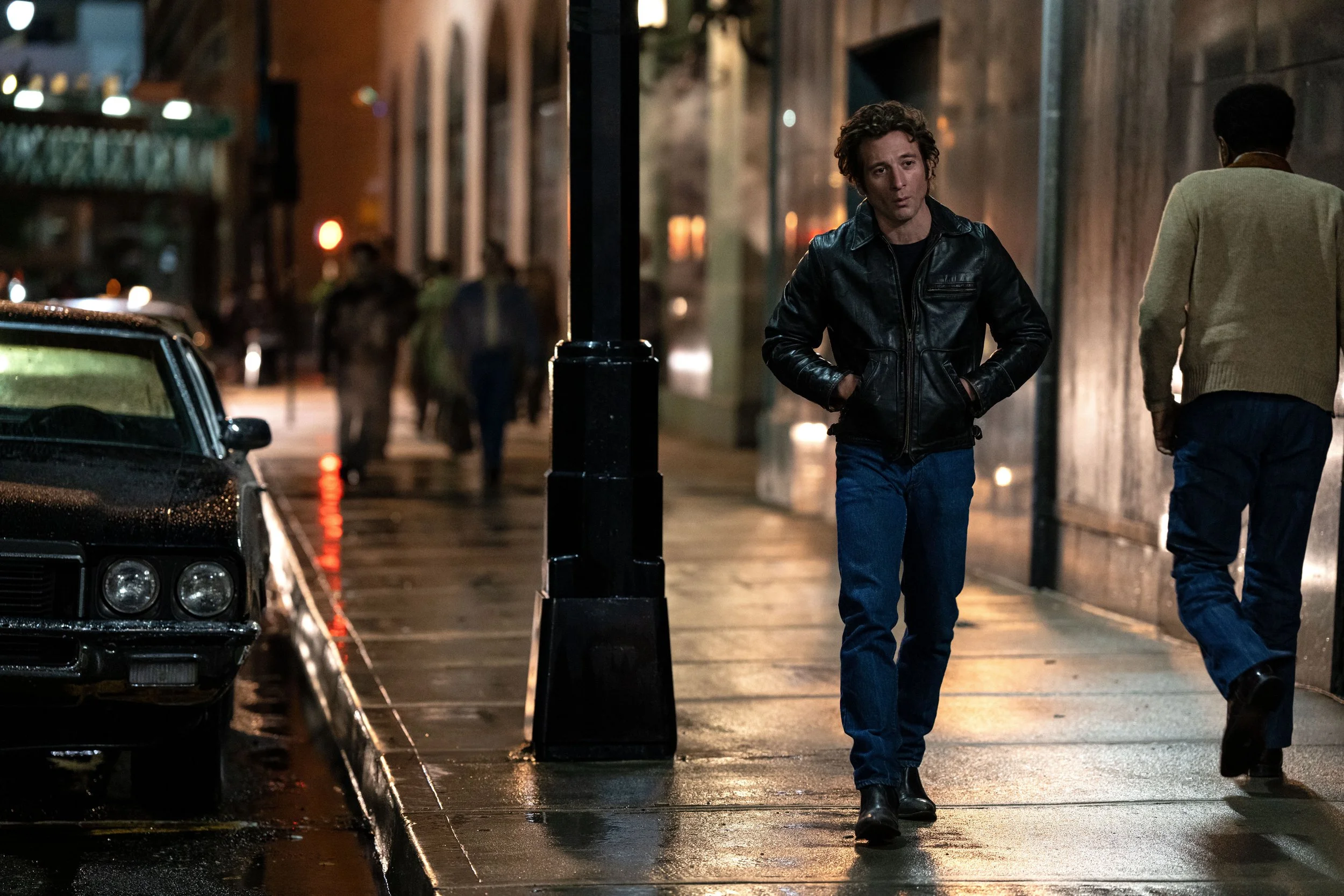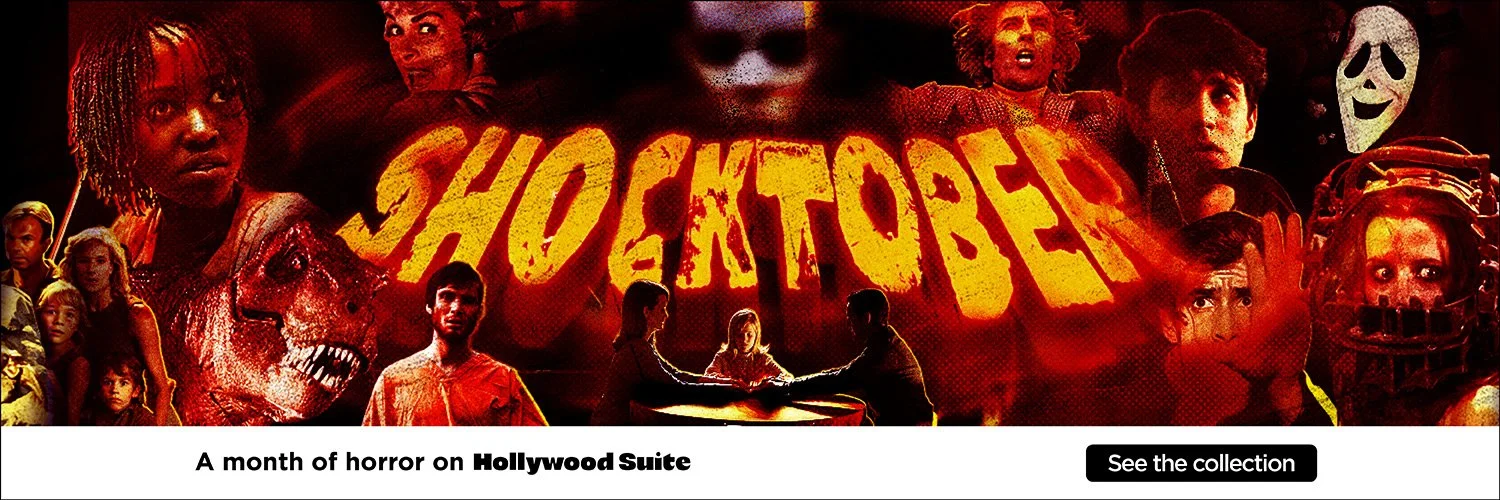Springsteen: Deliver Me from Nowhere Examines the Struggles Behind the Stardom
By Karen Gordon
Rating: B
If you go to Springsteen: Deliver Me from Nowhere expecting to see a biopic — the story of how Bruce Springsteen, the kid from New Jersey, became a music superstar together with the mighty E Street Band — you won’t find it. This is a much more intimate film about the American legend and, at the same time, something broader and more universal.
Scott Cooper, wrote and directed based on the book by Warren Zanes, has focused on a period of Springsteen’s life where one might imagine his incredible success would bring him a sense of satisfaction and a measure of peace. Instead, it did the opposite.
The film is set in the early 1980s when Springsteen had just come off a wildly successful tour supporting his album The River. Yet he feels lost, disconnected from himself and dealing with depression, the wounds of childhood trauma finally catching up to him.
There’s a lot of heart here. Cooper has done a good job of making us feel the internal wrestling match as Springsteen struggles with himself even as he’s going through a prolific period, writing enough material for two albums. Overall though, the film is a bit of a mixed bag and let down by a script that is at times too literal, even maudlin.
After The River tour, Springsteen (Jeremy Allen White) is tired, road-weary, and just wants to be alone. Despite the gentle urging of his longtime manager and friend Jon Landau (Jeremy Strong), who wants him to consider renting a place that’s not so isolated, Springsteen withdraws to an isolated house in New Jersey to decompress.
With his career on fire and propelled by the hit single “Hungry Heart,” there is pressure for him to get a follow-up record out as soon as possible. But Springsteen is withdrawing, and Landau does his best to shield his artist from the expectations of the business.
One night while flipping around TV, Springsteen comes across the movie Badlands and is struck. He researches the true story it’s based on, which triggers his creativity. Soon he’s writing songs. Local friend Mikey (Paul Walter Hauser) picks him up a new piece of technology, a TEAC 144 a compact four-channel cassette recorder, or a portastudio, that will let him record demo versions of his songs in his home.
Mikey is not a professional recording engineer, but that’s exactly what Springsteen wants: a chance to lay down the songs without professionals offering opinions. The two get to work, recording the songs with guitar, voice, and harmonica. Springsteen is having a creative spurt and inspired by Badlands and some other outside requests — including one from Donna Summer’s producer — he writes enough for two albums.
The setup is working well. Springsteen can work uninterrupted as much as he wants, but he has friends in the community who he hangs out with, who sometimes call him Boss, but treat him like an old friend. On Sundays for fun, he drives to a club in Asbury Park called The Stone Pony and joins the house band for a song or two. And that’s where he meets Faye Romano (Odessa Young), the younger sister of a former classmate, a waitress at the local diner, who is a single mom to a young daughter, and the two get involved.
Springsteen takes the songs into the studio with the E Street Band. Half work well, and it’s clear there’s enough material there for a strong follow-up to The River. But Springsteen thinks some of the songs lose something when played with the band. He decides to release those songs as he recorded them on the four-track, for what will eventually emerge as Nebraska. For all kinds of reasons, as we see in the film, that choice creates problems and challenges for Landau and Springsteen’s studio team.
Woven through the film are scenes from Springsteen’s difficult childhood which Cooper has shot in black and white. The film starts with eight-year-old Bruce (Matthew Anthony Pellicano, Jr.) being sent into a bar by his mom Adele (Gaby Hoffman) to retrieve his abusive, alcoholic father Douglas (Stephen Graham). As the film progresses, Cooper cuts back to these scenes, as Adele does what she can to protect young Bruce from his bully of a father.
Cooper has put a lot into the film, with mixed results. There are pieces that feel underdeveloped and there isn’t a lot of context, notably in the relationship between Springsteen and Landau. The love and loyalty between the two is key, as any Springsteen fan can tell you, but as presented in the film, it’s a bit too elusive. The best, rawest and most immediate scenes are those with Faye. Sometimes things unsaid work best.
The world needs more authentic stories about men struggling with and facing mental health challenges, and the film’s emotional core feels true. But it’s much less successful in weaving all the pieces together to make a truly powerful movie.
Cooper’s ace in the hole is Jeremy Allen White, in a grounded, sensitive performance, who continues to prove, in role after role, that he is a major talent, a mix of charisma and talent. He learned how to play guitar and sings a lot of the songs in the film, capturing Springsteen’s stage posture and his voice, no small thing.
White has an ability to portray emotional complexities even when walking down the street. The other ace is the fact that Springsteen has been open about his struggles with mental health. Cooper makes that struggle seem universal.
At its core, the film is the story of a man who has outwardly achieved everything that most of us imagine any artist or ambitious individual would want but still has to face himself. As we all do. The film captures that with real poignancy.
Springsteen: Deliver Me from Nowhere. Written and directed by Scott Cooper. Starring Jeremy Allen White, Jeremy Strong, Odessa Young, Stephen Graham, Gaby Hoffman, Paul Walter Hauser, and Matthew Anthony Pellicano, Jr. In theatres October 24.


